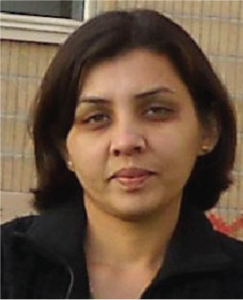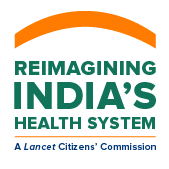In Conversation: Sarika Chaturvedi, Scientist, Dr D Y Patil University, Pune
December 1, 2021

As a freshly graduated student I often wondered why we got to see so many diseases that we were taught were ‘preventable’. Dissenting the usual way of blaming the patients for their state and noncompliance, I often thought the problems people came to us with were more complex and needed more than medicines. Subsequently I met Dr N H Antia, a renowned plastic surgeon who is the founder of the Foundation for Research in Community Health and the discussions with him completely changed my notions of health. I got to believe what he often said – health is a social and political science. Working with him and the team at FRCH was a life changing milestone with growing understanding of the social determinants of health and interest in health research . Those years of working at grass roots and also close exposure to the health policy work at FRCH especially during the evolution of the National Rural Health Mission shaped me to a public health researcher from an Ayurveda graduate. The opportunity to undertake doctoral studies at Karolinska Institutet with the group led by Prof Vinod Diwan exposed me to global public health while taking a deep dive into issues of quality of obstetric care in Madhya Pradesh. Insights during the postdoctoral fellowship with Dr Bhushan Patwardhan have influenced my current interests too. In the recent years , I am trying to weave together my training and experience in Ayurveda with that in public health by way of scientific explorations into the vast unstudied potentials of this combination.
As a Commission Fellow, I hope to contribute to its efforts at ‘reimagining the Indian health system’ through primary works and ongoing evidence synthesis. The Commission has a broad canvas covered under the five work streams, the human resources and citizens engagement work streams match my interests and strengths. I am particularly interested in quality of care issues spanning the competence of human resources, health seeking behaviours, people’s preferences including of medicine systems as also health inequities .
Currently I am working on a scoping review of the efficacy of AYUSH systems for neurodegenerative conditions led by Commissioners Dr Gagandeep Kang and Dr Bhushan Patwardhan.
The challenges for achieving UHC in India seem to be deep rooted such as
i) making health a priority on the national agenda
ii) bringing accountability at various levels in the health sector- education, research, policy and practice and
iii) ensuring the structures and opportunities for people to follow healthy lifestyles, be ‘active’ users and not merely passive recipients
I am hopeful that the Government will seriously consider the recommendations of the LCC and these will make way for a positive impact on India’s health system in the future. The work of the LCC should also develop new leaders capable of reimagining for the future of the nation.
